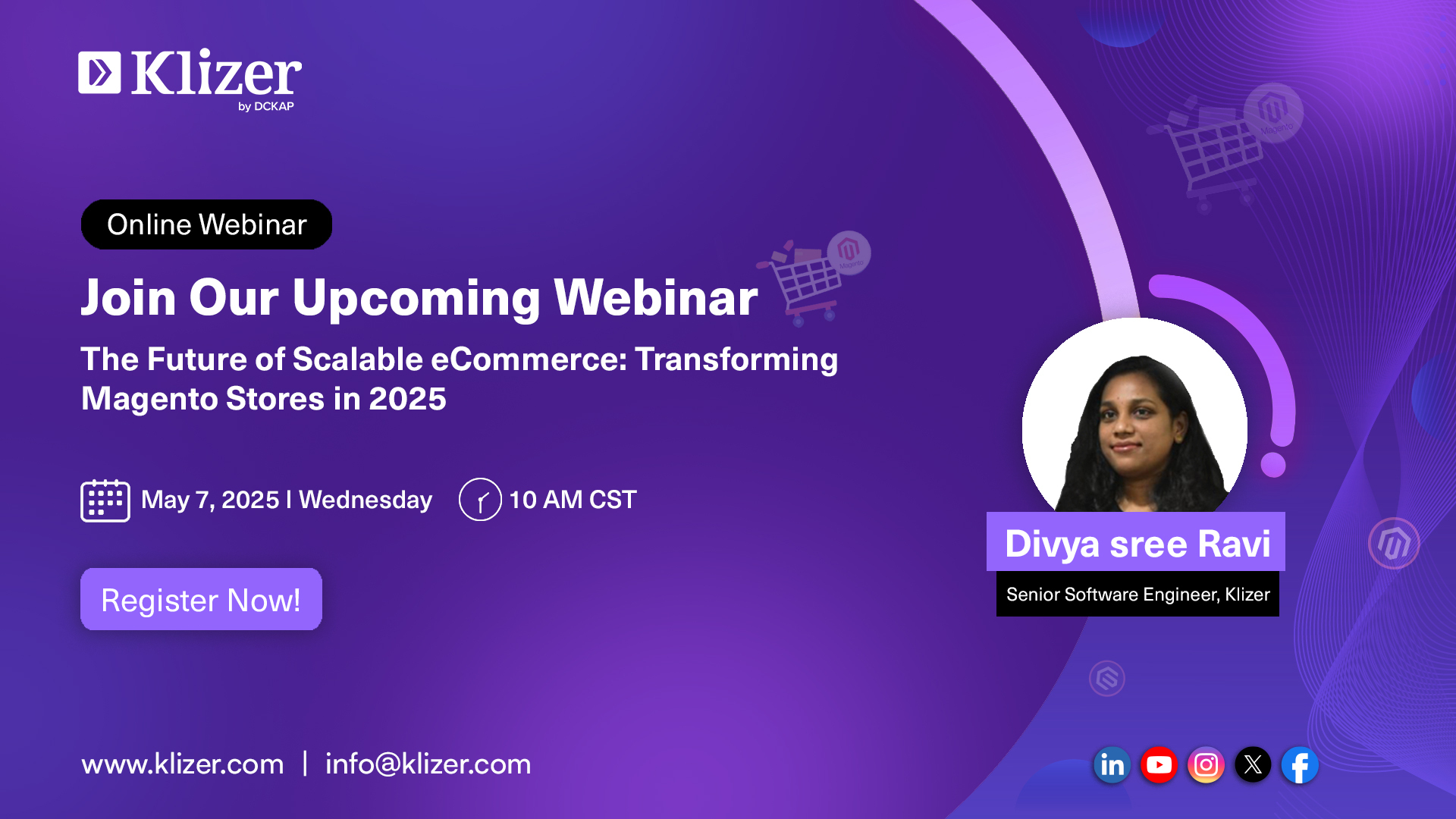The term “cost of Magento website” encompasses more than just a price tag. It refers to the total investment required to build, launch, and maintain a successful online store using the Magento platform. This investment includes the software and essential elements like development work, design, hosting, and ongoing maintenance.
ON THIS PAGE
Key Takeaway
Magento Open Source, known as ‘Magento,’ is free software providing essential features for online stores. However, creating a store with Magento incurs additional expenses like domain, hosting, and development. Based on our estimations, the total cost of investment for a Magento Website in 2024 falls into a range between $25K — $60K.
On the other hand, Adobe Commerce, formerly Magento Commerce, offers advanced features with On-Premises licenses starting at $22K/year and Commerce Cloud at $40K/year. Implementations usually range from $50K – $100K with necessary services.
Understanding the Total Cost of a Magento Website
| Components | Magento Prices |
| Adobe Commerce license cost | $22,000 – $40,000/year |
| Hosting | $100 – $6500/year |
| Domain name | $10 – $400/year |
| SSL certificate | $50 – $600/year |
| Design | $0 – $5000+ |
| Development | $50 – $10000+ |
| Extensions | $60 – $600 per extension |
| Payment providers fees | 2%-4% + $0.30 per transaction |
| SEO and digital promotion | $45000 – $68000/year |
Breakdown of the Total Cost of Magento Website
1. Magento License Cost
At the foundation of your Magento website lies the licensing fee. There are three different editions of the Magento licensing fee:
- Open-Source Edition
- Magento Commerce (Renamed as Adobe Commerce in 2021)
- Magento Commerce Cloud (Renamed as Adobe Commerce Cloud in 2021)
Here’s the good news: Magento offers a free Open-Source edition (Magento Open Source) that lets you build a fully functional store. However, the enterprise edition involves a licensing fee, typically depending on the size and needs of your business.
| Open-Source Edition Pricing | Magento Commerce Pricing | Magento Commerce Cloud Pricing |
| Free | $22,000 per year | $40,000 per year |
Kindly note: Although Magento Open Source itself is free, there are still Magento store development costs involved in developing and maintaining a successful Magento store. These costs may encompass:
- Expenses related to Magento developers
- Customization of Magento themes
- Acquisition of Magento extensions
- Investment in Magento hosting services
- Fees for maintaining Magento servers
- Procuring SSL certificates
- Charges from payment providers
- Expenditure on digital promotional activities.
Read Also: Magento Features: Open-Source & Commerce
2. Magento Hosting Cost
The cost of hosting in the Magento platform can fluctuate based on the scale and complexity of your online store, along with the extent of Magento support and customization you necessitate. Here are several factors to consider when assessing hosting options for your Magento site:
Shared Hosting vs. Dedicated Hosting
Shared hosting is typically more economical but may not provide adequate resources for larger or high-traffic stores. In contrast, dedicated hosting, although pricier, offers dedicated resources and enhanced performance.
Cloud Hosting vs. On-premise Hosting
Cloud hosting provides greater scalability and flexibility for Magento, alongside enhanced security and backups. Conversely, on-premise hosting grants more control and customization options but involves technical proficiency and infrastructure upkeep.
Managed Magento Hosting vs. Self-hosting
A Managed Magento hosting plan delivers ongoing support and maintenance services, ensuring the smooth operation of your store. It encompasses various factors such as server setup, migration, security measures, performance optimization, monitoring, and technical support.
Self-hosting may be more cost-effective but necessitates greater technical competence and sole responsibility for maintenance and security.
Consider additional services or charges such as SSL certificates, backups, and site monitoring when evaluating hosting expenses. To select the optimal web hosting solution, consider the following aspects:
- Level of technical proficiency
- Budget allocation for Magento hosting
- Analysis of critical business projects
- Complexity in managing the Magento application
- Individual or team involvement
- Availability of system admin support services
- Scalability requirements
- Uptime and reliability expectations
3. Cost of a Domain Name
Your domain name is your online address which is essential for brand identity and online presence. Domain registration fees span from $10 to $400 annually, contingent upon factors like domain extension (.com, .net, .store), popularity, and registrar. The annual pricing for domain names can fluctuate based on different scenarios:
- For a newly registered domain: $10–20 per year
- For expired domains: $20–400 per year
4. SSL Certificate
The security of your online customer is non-negotiable in an ecommerce platform. Therefore, an SSL certificate encrypts sensitive information and data, resulting in trust-building and safeguarding customer transactions. Expect to pay between $50 and $600 annually, depending on the type (e.g., single domain, wildcard) and hosting provider.
5. Magento Web Design Cost
The user experience of your Magento website impacts customer engagement and conversion rates. You can use a free or low-cost theme (be mindful of limitations) or invest in a premium theme with advanced features and a unique look (ranging from $100 to $2,000). For a completely custom theme, expect costs to climb above $5,000.
6. Magento 2 Development Cost
Even with a theme, you might need some development work to fit functionalities to your specific needs. In an ecommerce setting, five crucial pages significantly impact customer retention and engagement, thereby enhancing conversion rates:
- Homepage
- Category page
- Product page
- Shopping cart page
- Checkout page
When utilizing a free pre-designed Magento theme, Magento developers typically invest a minimum of 40 hours in customizing these key pages to align with the overall brand aesthetic. This customization may involve tasks such as:
- Banner creation
- Adjusting text, icons, and button colors
- Rearranging content blocks
Given the average cost of an hourly rate of a Magento developer, which stands at $50, the baseline cost for Magento website development begins at $1,800.
7. Extensions
Magento owns a vast extensions marketplace that adds functionalities like loyalty programs, live chat, and advanced product filtering. While some extensions are free, premium ones typically range from $60 to $600 per extension, depending on the complexity and utility they bring to your ecommerce ecosystem.
8. Payment Provider’s Fees
According to the McKinsey report, Stripe, Authorize.net, and PayPal stand as the leading ecommerce payment solutions, collectively accounting for 75.6% of global payment transactions. These payment service providers typically do not impose setup costs.
However, they typically charge a combination of a percentage fee (around 2% to 4%) and a fixed fee (around $0.30) per transaction. To ensure optimal cost-effectiveness for your business, it’s advisable to conduct thorough research and select the most suitable payment service provider.
9. SEO and Digital Promotion
Driving traffic to your Magento ecommerce website and enhancing its visibility demands ongoing investment in Magento Search Engine Optimization (SEO) and digital marketing efforts.
Budgeting an SEO expert/freelancer/agency for promotion can range from $45k to $68k annually, depending on the competitiveness of your niche and the scale of your campaigns. Magento SEO professionals provide a variety of services, encompassing:
- Conducting Website Audits
- Performing Keyword Research
- Analyzing Competitors
- Reviewing and Enhancing Product Pages
- Optimizing Page Speed
- Integrating Google Analytics and providing reports
Furthermore, paid promotional avenues such as Google Ads are instrumental. Engaging an expert in this field typically incurs an hourly rate ranging from $15 to $100.
Consider engaging with an agency that offers both SEO and SEM services to streamline operations. Alternatively, you could opt for a freelancer proficient in both domains, albeit at a slightly higher hourly rate.
7 Factors That Influence the Cost of a Magento Website
1. Scope and Complexity of Features
Basic ecommerce functionalities such as product listings, shopping carts, and checkout are standard. However, additional features like advanced search capabilities, personalized product recommendations, multi-language support, and integration with third-party services can increase development time and costs.
2. Customization Requirements
Customizing your Magento website to reflect your brand identity and cater to specific online business requirements adds to the overall development cost. Custom design elements, store functionality, and custom user experiences contribute to higher development expenses compared to off-the-shelf solutions.
3. The Scale of Ecommerce Operation
The scale directly impacts the complexity and cost of your Magento website. A small boutique with a limited product catalog will have different requirements and costs compared to a large enterprise managing thousands of SKUs across multiple regions. Factor considerations such as inventory management, order processing, and scalability into the development process.
4. Design and User Experience (UX)
Investing in professional web design services to create visually appealing layouts, intuitive navigation, and seamless user journeys enhances the overall user experience but may incur additional costs. Unique design work, responsive design for mobile devices, and usability testing contribute to the design-related expenses.
5. Integration with Third-Party Systems
Integrating your Magento website with third-party systems and services such as payment gateways, shipping carriers, ERP software, CRM systems, and marketing tools enhances its functionality and operational efficiency. However, each integration adds complexity to the development process and may require customization, resulting in higher costs.
6. Ongoing Maintenance and Support
Building a Magento website is not a one-time investment; it requires ongoing maintenance, updates, and technical support to ensure optimal performance and security. Budgeting for post-launch maintenance, software updates, security patches, and troubleshooting services is essential to keep your Magento website running smoothly and securely over time.
7. Development Partner or Agency
The choice of a development partner or web development agency also influences the cost of your Magento website. Rates vary based on the expertise, experience, and location of the development team. While opting for a lower-cost developer may seem budget-friendly initially, it’s essential to consider the quality of work, reliability, and long-term support provided by the chosen partner just like Klizer, your go-to Magento development partner.
Also Read: 10 Best Magento Ecommerce Agency
Tips for Budgeting for a Magento Website
- Define Your Needs Clearly: Clearly outline the functionalities you need for your ecommerce store before focusing on the development. It will help you avoid scope creep (adding features mid-development) and control costs.
- Prioritize Features: Not all features are created equal. Identify the functionalities essential for your launch and consider adding features later as your business grows.
- Explore Open-Source Ecommerce Platform Solutions: Magento Open Source offers a solid foundation for your ecommerce store. Look for free or low-cost extensions to fulfill basic needs before investing in premium options.
- Plan for Ongoing Costs: Remember, Magento website development is just the first step factor in ongoing expenses such as hosting, domain renewal, SSL certificate fees, and potential maintenance costs.
- Consider Long-Term Scalability: While a basic website might suffice initially, plan for future growth. Choose a solution that can scale easily to accommodate your expanding product range, customer needs, and base.
Optimizing the Cost of Magento Website Development
The cost of creating a Magento website encompasses various factors, including licensing fees and hosting costs to web design, development, and ongoing maintenance. By prioritizing features, researching options, and planning for scalability, you can allocate resources judiciously and lay a solid foundation for your Magento ecommerce store that scales with your business. Remember, informed decision-making is key to maximizing ROI and ensuring long-term success.
FAQs
Is Magento pricing a big priority for small businesses? (Yes)
For small businesses, the Magento pricing model is a major consideration. The good news is Magento offers a free Community Edition, but additional costs like development and hosting will still need to be factored in.
Is there any cheapest way to build a Magento store with the free version?
The free Magento Community Edition is a great option for small and medium-sized businesses with basic needs and some technical skills. However, for a more feature-rich and unique store, development costs will likely be involved. To learn more about Magento pricing, contact us now.
Should I choose Magento Enterprise Edition if I need a high-performance ecommerce store?
Magento Enterprise Cloud Edition might be the best choice for store owners with advanced needs and high sales volume. It offers superior scalability, security features, and built-in B2B functionalities compared to the Community Edition. However, this premium Magento edition comes with a higher overall cost.
What is the starting price of Klizer for building an ecommerce website?
Klizer’s ecommerce development services start from $40,000. Reach out to us to receive a customized quote.
What is the duration of ongoing support and maintenance provided by Klizer after project completion?
For Fixed Bid or Project-based arrangements, we provide a complimentary 30-day support period post-launch, exclusively for bug fixes; no new features are developed during this time.
Clients can opt for additional support through a Time and Material (T&M) model, with a minimum of 100 hours of support valid for at least 60 days. Moreover, we offer retainer engagements tailored to the client’s needs, providing ongoing support where developers are fully dedicated to the project.
Hourly rates for support are $95, while retainer pricing is customized based on individual requirements, which can be discussed further during a call.







